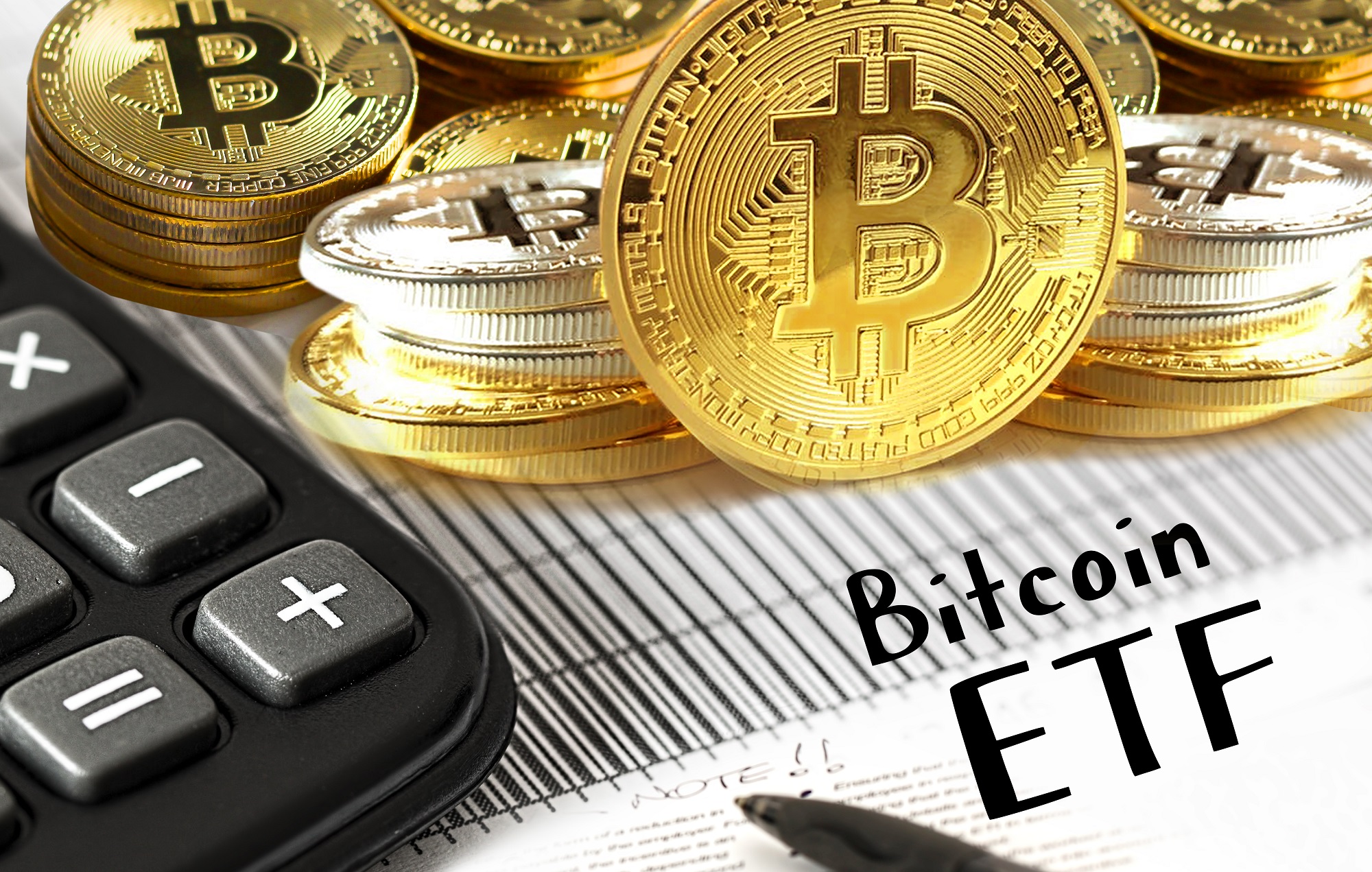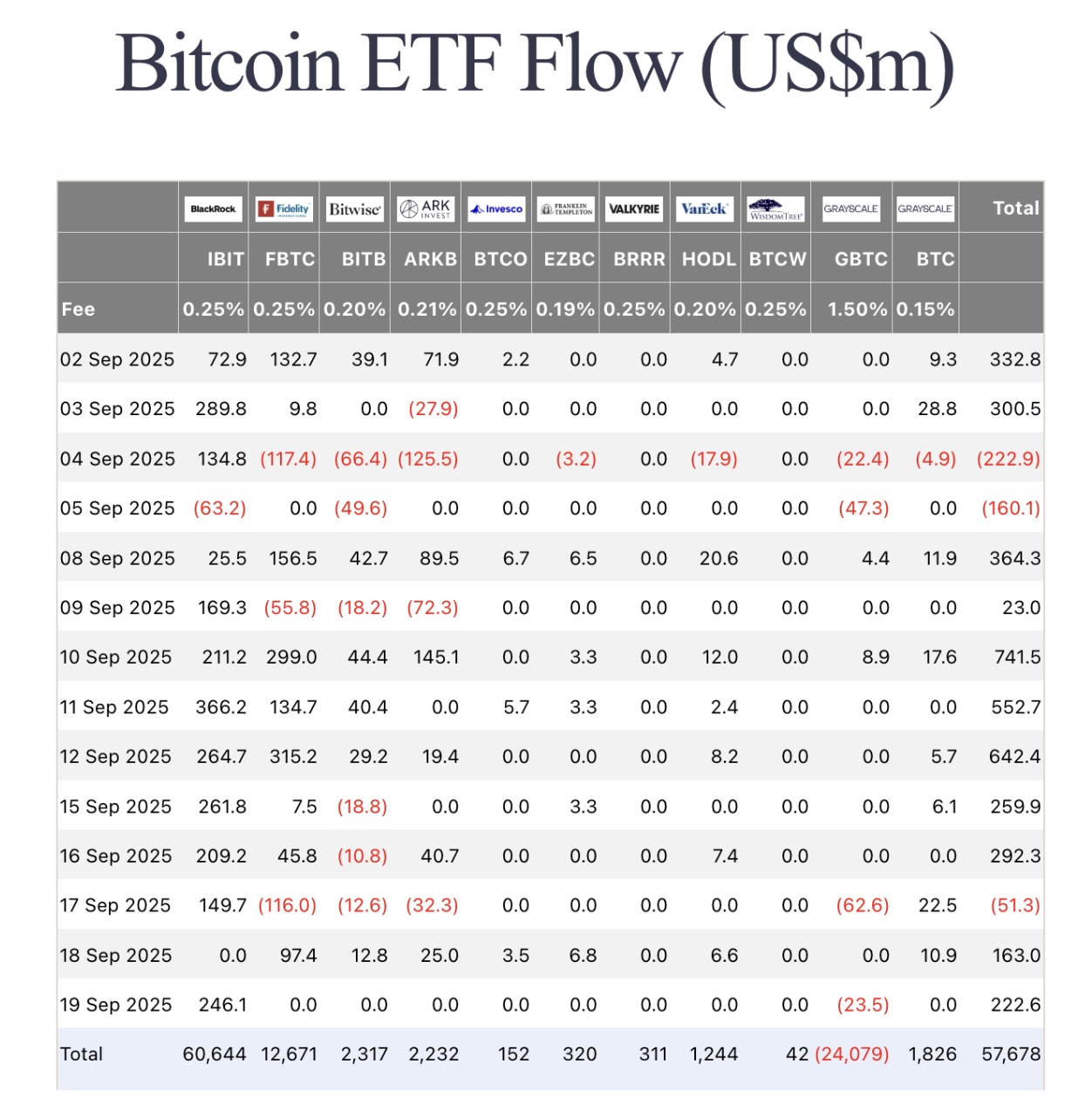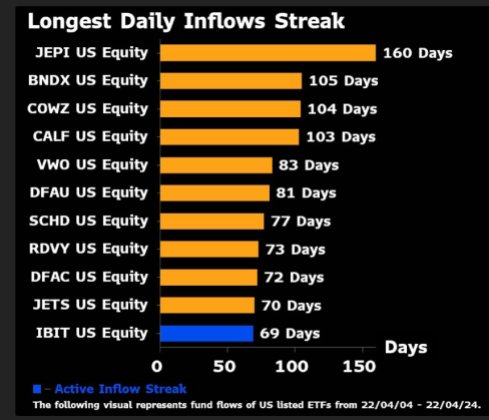
2018-12-29 01:23 |
You have likely heard plenty of news about ETFs and what they can do for the lackluster condition of the cryptocurrency market today. Investors think a Bitcoin ETF will save the day while others believe it is just another step on the ladder to becoming a “legitimate” asset that people will know and soon be using.
But what exactly is an ETF, and why the hell are they going to make things so much better if the SEC lets them happen? Good question, and here is some information you can use to answer this and maybe a few other queries going through your mind right now.
What is an ETF exactly?An ETF, also known as an exchange-traded fund, is something that one can quickly convert into cash for a reasonable price because it is a hallmark marketable security. It connects its value to an index as it relates to the underlying asset, such as bonds, commodities, or baskets of any set of assets grouped together. In the case of a Bitcoin ETF, it would be tied to Bitcoin, that is if the SEC ever allows it.
You may say this sounds like a mutual fund, but investors can buy and sell ETFs like a stock on an exchange and produce price fluctuations just like a stock as well. They can buy or sell ETFs quickly, and they typically cost less in fees than mutual funds which make them attractive.
These funds own the underlying assets that give them their value, then splits the ownership into the individual shares that can be bought and sold. Those who purchase these shares can claim no direct connection to the asset base, but instead, claim an indirect ownership and are entitled to a part of the profits coming from those assets like dividends paid out or earned interest. Some ETFs also have residual value when/if they are liquidated.
Why are ETFs important and how do they work?The SEC has considered, and so far rejected, rule changes that would allow Bitcoin ETFs to be listed on various exchanges like NYSE Arca, but there will be more applications for funds like these in the future, and it is hoped that the SEC will relax and allow for these to be traded soon. But why is any of this important to an investor in cryptocurrency?
ETFs could give investors other options for investing their money in Bitcoin while adding the much-needed liquidity to the Bitcoin markets. They would also draw in other types of investors, and add legitimacy to these markets that could help vault them up to the next step on the investment ladder. Currently, Bitcoin ETFs trade on over-the-counter (OTC) markets, but these markets are much less transparent than an exchange market would be and have less legitimacy due to this fact.
The returns on these OTC traded ETFs have had some positive results, but the volatility of the market has made difficulties for these funds. An exchange based ETF would be more stable as regulation would undoubtedly help control volatility by instituting some controls and a requirement for self-certification.
When and if they get to this point it would work something like this:
Authorized Participants (who have to be licensed by the provider and typically bring with them a ton of purchasing power) will get things going by buying up the assets needed to create the ETF. Then the Authorized Participant will send those assets over to the provider who will then send the Authorized Participant shares of the fund equal to the number of assets bought. The Authorized Participant then puts the ETF shares on the market for purchase. Why is the SEC rejecting Bitcoin ETF attempts?In 2013 the Winklevoss twins filed with regulatory agencies to get a Bitcoin-based ETF started and were rejected along with every other attempt so far to make these funds come to fruition. It seems these ETFs concerned the SEC, and here are a few things they are concerned about:
Custody issues due to the digital nature of cryptocurrency. Arbitrage issues (which is the buying and selling of an asset at the same time and making profits off price imbalances) coming from the lack of liquidity in cryptocurrency markets. Valuation issues due to the potential inability to price the NAV accurately so that the Authorized Participant doesn’t lose money due to the volatility of the market that will make pricing out of joint and NAVs to be inaccurate. Market surveillance issues stemming from a lack of agreements to be listed. Lack of regulation issues arising from the fact that cryptocurrency markets have almost zero regulations in place, which is why they aren’t considered legitimate and are having such troubles getting their assets into the legitimate trading exchanges. Market manipulation issues arising from the unregulated nature of the cryptocurrency market. Liquidity issues because a volatile market will most likely have high daily redemptions and there may not be enough liquidity to make those happen without slippage, which is where there is a difference between expected and actual trade price.If Bitcoin ETFs will ever come to pass there would most likely be two different types to invest in. The first would be the type that holds assets, which is almost the same type of ETF as in the example above only the fund would be tracking Bitcoin. The only difference would be that the Authorized Participant could send cash over to the provider instead of having to buy the actual cryptocurrency. It will be the provider that takes that cash and buys crypto and returns the shares to the Authorized Participant.
These would be great because there would be some low transaction costs, and these funds would track well with the Authorized Participants able to arbitrage the price differences between the NAV and ETF at a profit which would remove huge discounts and high premiums.
Concerns for an ETFHowever, several things might be cause for concern. One of those is the provider would have to ensure that someone does not steal the assets backing the ETF shares as they will need to be in physical possession of those assets. Another one is that there will probably be higher fees for these ETFs because of the transaction expenses incurred by the Authorized Participant for the making and keeping of shares when they give or take a basket of cash. There is also the possibility of an inaccurate NAV causing damage to the arbitrage process because these NAVs will need to be calculated more than once a day due to market volatility and the fact that prices for cryptocurrencies can be different depending on which exchange you are looking at.
There is also the fact that markets for ETFs can be closed while the markets for cryptocurrency remain open. This means that if Bitcoin prices suddenly dropped investors into those ETFs might not be able to sell them off to help reduce their losses. There is also the possibility that ETFs (initially) would not be offered at a price that would allow the retail investor to make purchases because they would be priced out of their reach due to the SECs attempts to “protect” those investors.
The second investment option would see ETFs based in derivatives. This means the ETF would try to copy cryptocurrency activity by trading futures and options, swaps and money market devices, along with other types of pooled assets. The good thing about these would be that providers won’t have to worry about holding the assets. Some concerns are that these approximations of cryptocurrency performance could end up with fund performance not matching that of the assets being tracked if they weren’t careful.
Also, these funds would be actively managed and under the complete control of a money manager who may end up underperforming the cryptocurrency market being tracked. Not only that, but there would be some high fees involved here because someone has to pay the money manager.
Then there are other risks like those that could have the futures contract liquidated because they don’t have enough cash on hand at margin call, which would cause immediate losses could be substantial. Market volatility and high amounts of leveraged trading within the market make this possible, and the high volume of leveraged trading can cause any price fluctuations to adversely affect the fund’s performance.
There are also concerns about rollover, which is when a futures contract is switched with one that expires further on down the line. They do this so that these contracts don’t go to settlement. The investor could lose money because the future price may be higher than the spot price when they roll the asset.
Pros and Cons of a Bitcoin ETFAdd it all together, and you get the possibility of ETFs creating legitimacy and huge profits for investors with enough cash to purchase these kinds of funds if they should ever come to pass. It will be the rise in legitimacy that will mean the most for the cryptocurrency market as this will be yet another step into the investing world that will get the attention of big money sources and create even more blockchain innovation as it will be required to solve the current issues keeping Bitcoin ETFs in the dark and solve the issues that will come to pass once these type of funds see the light of day.
This, of course, is a good thing, but now imagine all the issues we see coming up for one type of cryptocurrency (Bitcoin) and imagine trying to create an index for all cryptocurrencies on the market today. Is it possible? Yes. Will it happen soon? Unlikely, and this cancels out some of the most significant benefits of investing in ETFs in the first place. Taking only a fractional piece of a very large and diverse basket of assets is what makes an ETF special, and a Bitcoin ETF will only be based in Bitcoin.
If someone were to start a project that would allow one to diversify by holding onto the coins themselves this might help solve the problem of diversification, but one would need to be supremely confident in their ability to keep those assets safe, and that might run one into some expense they hadn’t planned for.
If we can solve the various issues outlined by the SEC and allow for diversification, then cryptocurrency ETFs could be something good that will enable investors to use a much-needed vehicle to get into the cryptocurrency game, but retail investors will still need to wait for a while because if the SEC even allows these investments it seems likely that they will first be tested out on institutional investors who can afford to take the loss if it all goes belly up. As mentioned, this will be done by keeping the initial prices so high that only institutional investors will be able to afford to get in.
This is both good and bad as it protects the little guy, but it keeps the retail investor at the sidelines while the institutional investors have time to make some nice profits and that isn’t fair and probably will create somewhat of a backlash as these investors might turn a blind eye when the initial prices come down low enough for them to get into the game. Also, this doesn’t seem to hold to the spirit or ideology of cryptocurrency and would allow the SEC indirect control over cryptocurrency investment.
That goes in the opposite direction and would allow them to, directly and indirectly, institute conditions that investors will have to deal with. This would not be decentralized and would see other government agencies throughout the world trying to institute their own rules which could turn into a problem of nightmarish proportions if allowed to happen.
ConclusionSo, while ETFs are the talk of the town and they could definitely be fantastic for a market that needs boosting, the price we might have to pay for the privilege of joining the “legit” world of investing might end up being higher than we thought. Time will decide on which way these investments will go and decisions made today will impact the future of cryptocurrency investment in both positive and negative ways no matter which way the ball bounces. Either way, it will shape the future of cryptocurrency investing and give direction to this journey that started with Satoshi Nakamoto in 2009.
The post Bitcoin ETF – What Is It Exactly and Why Would It Boost Cryptocurrencies? appeared first on NullTX.
origin »Bitcoin price in Telegram @btc_price_every_hour
EthereumFog (ETF) на Currencies.ru
|
|

















